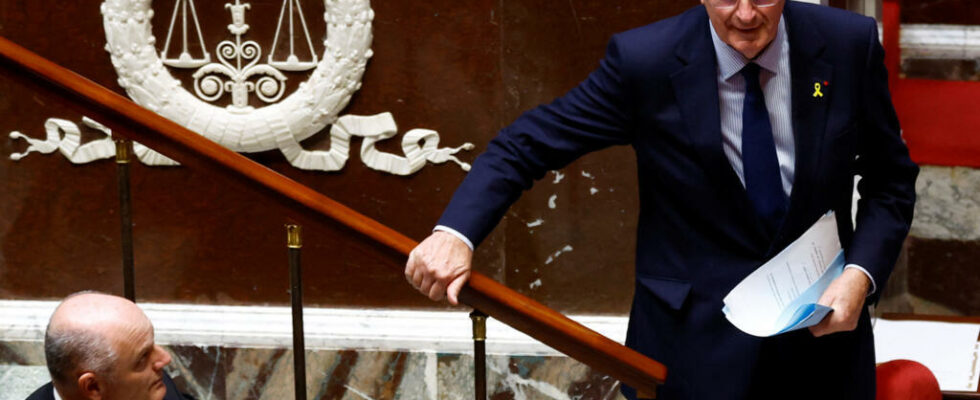Article 49.3 of the Constitution, allowing the adoption of a text without a vote, is on everyone’s minds during the full examination of the budget in a National Assembly without a majority. Things have become clearer since October 23 in the morning because his appeal was raised in the Council of Ministers. If the government now has the green light to use it, that does not mean that it will be drawn up immediately by the head of government, Michel Barnier.
4 mins
To initiate 49.3, a deliberation is required in the Council of Ministers. It is now done and the Prime Minister so can use it at any time. The big question is not whether it will be drawn or not. In all likelihood it will be since the oppositions have already said, and this is tradition, that they would not vote for the budget. No, the big question is to know when Michel Barnier will come to the podium of the Palais-Bourdon to invoke 49.3?
Going through force by having a text adopted without a vote is not without risk depending on the moment? The first of these is the motion of censure to which the government is exposed. But even if this motion fails, the oppositions could tense up just like public opinion. The accusation of denial of democracy or non-respect of Parliament’s rights happens quickly, particularly if the debates were quickly cut short. Moreover, barely has the idea of a 49.3 been mentioned before voices in the opposition are already denouncing a power grab.
In a fragmented Assembly, caution is required
Unlike the previous legislature, the oppositions on the left (New Popular Front, 193 deputies) and far-right (National Rally, 126 deputies) only have to add their voice to bring down the government. This partly explains the Prime Minister’s stated intentions to let the debate take its course and not want to use 49.3 immediately and as little as possible, even if it means losing on certain provisions as was the case Tuesday evening when the deputies adopted a lasting surtax on high incomes when the government only wants it to be temporary.
Michel Barnier also knows that deadlines are tight. Typically, on the first reading exam, a 49.3 is unlikely to occur. It must end next Tuesday and even if the deputies working this weekend, it is almost impossible for the more than 3,700 amendments to be examined in time. The text would then go in its initial form, 60 billion euros in savings, two thirds on spending and a third via taxes, in the Senate dominated by the right and the center and therefore favorable to the government. The text will then be shuttled twice between the upper and lower houses of Parliament within a time limit of December 21.
The Barnier government can get bogged down
If Michel Barnier lets the debate take its course without recourse to 49.3 without the National Assembly being able to vote, the objective would be to call the French to witness by placing the responsibility for the blockage on the deputies unable to complete the budget but also irresponsible in the face of the budgetary situation (deficit expected around 6% of GDP in 2024; more than 3,200 billion euros in public debt). For several days, the debates in the Assembly have taken a direction increasingly distant from the initial objective of cleaning up public finances.
In committee, the left, sometimes allying with the center, sometimes with the far right, managed to increase taxes by 60 billion euros without affecting spending. That Michel Barnier described as “ Lépine tax competition “. Giving yourself time also means giving a chance to arrive at a budget acceptable to at least part of the opposition, notably the National Rally. If he will not vote on the budget, he might not vote on the motion of censure following a 49.3 if he gets pledges. For example, the RN does not want the increase in taxes on electricity (provided for in article 7 of the PLF). Remember that with 49.3, the government has the right to retain or reject the amendments that suit it.
Obviously, the opposition will not let Matignon’s plans go as planned. On the far right, it will be a matter of constraining the government as much as possible. On the left, to make the government responsible for the stalemate by tabling, for example, a lower number of amendments than the deputies of the central bloc. It is difficult – ultimately – to know when this famous 49.3 will be activated.
Also readThe election of the ecologist Jérémie Iordanoff as vice-president of the Assembly shakes the Macronie-LR alliance
